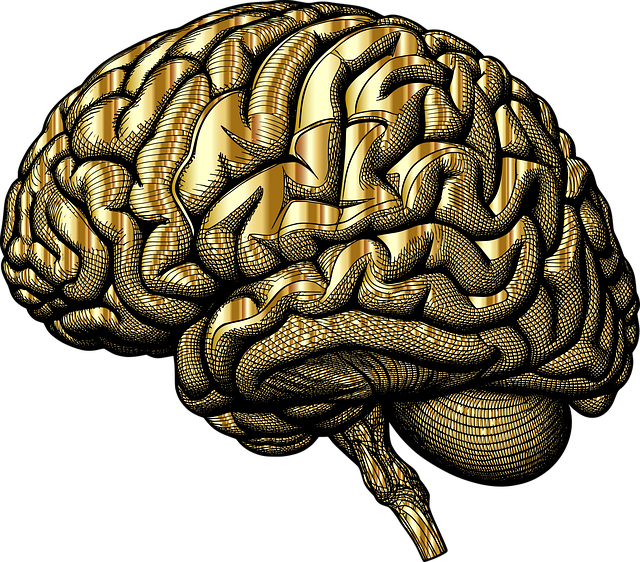Mindfulness meditation, as advocated by Wheat Ridge Obsessive Compulsive Disorder Therapy, is an effective therapy tool for OCD. Rooted in Buddhist philosophy, it cultivates present-moment awareness and non-reactivity to thoughts, helping individuals detach from intrusive OCD thoughts and compulsions. By integrating breathing exercises, body scans, and trauma recovery techniques, mindfulness enhances emotional regulation, anxiety management, and self-awareness, complementing other therapeutic approaches. Creating a dedicated meditation space and setting intentions prior to practice improves results. Techniques like mindfulness and compassion cultivation overcome unique challenges of OCD, fostering cultural sensitivity, self-esteem improvement, and safe mental exploration. Integrating mindfulness into daily life guides individuals back to the present moment, promoting conscious choices and reduced automatic reactions throughout the day.
“Unwind and embrace a transformative journey towards freedom from obsessive-compulsive disorder (OCD) with mindfulness meditation. This comprehensive guide offers valuable insights for individuals in Wheat Ridge seeking OCD therapy alternatives. Discover how preparing your space and mindset, mastering challenging thought navigation techniques, and integrating mindfulness into daily life can lead to lasting relief. By understanding the power of mindfulness meditation, you’ll unlock a peaceful path to enhanced mental well-being.”
- Understanding Mindfulness Meditation for OCD Relief
- Preparing Your Space and Mindset for Practice
- Techniques to Navigate Challenging Thoughts During Meditation
- Integrating Mindfulness into Daily Life: Cultivating Sustained Awareness
Understanding Mindfulness Meditation for OCD Relief

Mindfulness meditation is a powerful tool that can significantly aid individuals struggling with Obsessive-Compulsive Disorder (OCD). It involves cultivating present-moment awareness, observing thoughts and feelings without judgment, and developing a non-reactive mindset. This practice is rooted in ancient Buddhist philosophy but has been adapted and integrated into modern therapy approaches, including Wheat Ridge Obsessive Compulsive Disorder Therapy. By focusing on the here and now, mindfulness meditation helps individuals detach from intrusive thoughts and compulsions that are characteristic of OCD.
Incorporating mindfulness techniques, such as breathing exercises and body scans, can provide much-needed trauma support services for those with OCD. These practices promote emotional regulation and conflict resolution techniques, allowing individuals to manage anxiety and distress without resorting to repetitive behaviors. Additionally, mindfulness meditation complements other therapeutic interventions, like social skills training, by enhancing self-awareness and improving one’s ability to respond mindfully in various social situations.
Preparing Your Space and Mindset for Practice

Creating a dedicated space for your mindfulness meditation practice is a significant step toward cultivating mental wellness. In the context of Wheat Ridge Obsessive Compulsive Disorder Therapy, establishing a tranquil environment becomes even more crucial as it facilitates a deeper connection with your inner self. Consider transforming a quiet corner in your home into a sanctuary where you can retreat to focus on your breath and thoughts. A clutter-free space, adorned with soothing elements like soft lighting, greenery, or calming artwork, can significantly enhance the quality of your practice.
Before beginning, take a moment to set an intention for your session—be it stress relief, improved emotional regulation, or heightened awareness. This mindset preparation is integral to the Mental Wellness Podcast Series Production, where listeners often share their journeys towards mental health improvement. By setting an intention, you’re not just preparing for a practice; you’re embarking on a journey of self-discovery and healing, much like navigating through a meticulously crafted Risk Management Planning for Mental Health Professionals, ensuring each step is mindful and strategic.
Techniques to Navigate Challenging Thoughts During Meditation

Meditation can be a challenging practice, especially when navigating the flood of challenging thoughts that often arise during sessions. For individuals dealing with Wheat Ridge Obsessive Compulsive Disorder (OCD) Therapy, this can be even more daunting. Techniques like mindfulness and compassion cultivation practices offer valuable tools to manage these intrusions. By cultivating present-moment awareness, you can observe your thoughts without judgment, acknowledging their presence and letting them pass like clouds in the sky.
Incorporating cultural sensitivity in mental healthcare practice is also beneficial. Recognizing that our thoughts are shaped by our unique backgrounds and experiences allows for a more nuanced approach to meditation. Accepting and validating these diverse perspectives creates a safe space where individuals can explore their minds freely, fostering self-esteem improvement and a deeper sense of understanding.
Integrating Mindfulness into Daily Life: Cultivating Sustained Awareness

Integrating mindfulness into daily life goes beyond fleeting moments of calm; it’s about cultivating sustained awareness that deepens throughout the day. This means being fully present during routine tasks, from brushing your teeth to walking to work, paying close attention to sensory experiences and emotional cues. It’s about recognizing when you’re caught up in thoughts or reactions, and gently guiding yourself back to the here and now.
In Wheat Ridge OCD therapy, compassion cultivation practices are often woven into this fabric of mindfulness. By practicing self-care practices that nurture inner strength development, individuals learn to approach challenging thoughts and behaviors with kindness and understanding. This cultivates a sense of resilience and equanimity, allowing for more conscious choices and less automatic reactions throughout the day—a cornerstone of sustained mindfulness in everyday life.
Mindfulness meditation, as explored in this guide, offers a powerful tool for managing and overcoming OCD symptoms. By creating a dedicated space, adopting the right mindset, and employing techniques to navigate challenging thoughts, individuals can unlock the transformative potential of mindfulness. Integrating these practices into daily life cultivates sustained awareness, enabling better coping mechanisms and improved well-being. For those seeking Wheat Ridge obsessive-compulsive disorder therapy, incorporating mindfulness meditation as part of their treatment plan could be a game-changer in fostering mental resilience and finding lasting relief.









